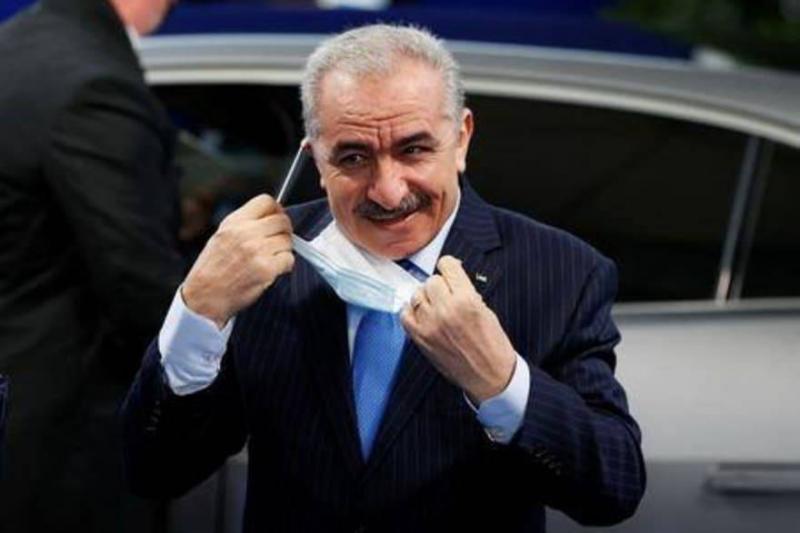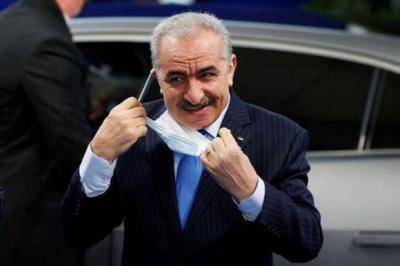Palestinian Prime Minister Mohammad Shtayyeh stated on Tuesday that the Palestinian Authority is facing its most challenging financial situation in years due to a decline in international and Arab financial support. He added during an extraordinary government session in Ramallah to discuss the financial conditions that "the aid received until the end of the year has not exceeded 10 percent of what usually reaches the treasury, which will reflect on the operating expenses of the Authority."
Shtayyeh mentioned at the beginning of the meeting that the government is discussing "the repercussions of the Palestinian National Authority not receiving any financial aid from brotherly Arab countries over the past two years." He said, "Although the United States has resumed some of its aid to UNRWA, U.S. congressional laws prevent the American administration from assisting the Authority directly."
He added, "Next week we will participate in a donor countries meeting in Oslo, where we will ask friendly countries of Palestine to pressure Israel to stop deducting from Palestinian tax funds, as well as increase their aid so that we can meet our obligations."
Israel deducts from the tax funds it collects on behalf of the Palestinian Authority, taking a three percent commission on goods that pass through to the Palestinian market, claiming that the Authority pays this amount to Palestinian prisoners in its jails and to the families of those killed during confrontations or operations against Israel.
The World Bank expects the budget deficit of the Palestinian Authority to reach $1.36 billion in 2021. In a report released on Tuesday, it stated, "The Palestinian Authority may face difficulties in meeting its ongoing obligations near the end of the year." It added, "The Palestinian Authority is no longer able to borrow from local banks and may have to increase the accumulation of overdue debts to the private sector, which could further withdraw liquidity from the market."
Recent data from the Ministry of Finance indicates that the public debt of the Palestinian Authority reached 12.337 billion shekels at the end of August, of which 8.072 billion shekels is domestic debt, and banks' share of domestic debt is 5.039 billion shekels.
Finance Minister Shukri Bishara stated in a government announcement after the meeting that "despite the efforts of the Ministry of Finance to reduce the treasury deficit, the continued unjust Israeli deductions from the clearance funds exacerbate the burdens and weaken the ability to meet the ministry’s obligations regarding operating expenses and accumulated debts to service providers."
The government announced in its statement following the meeting that it has taken "a series of measures aimed at alleviating the burdens on the treasury through an administrative and financial reform program that will improve the performance levels in public service, reflecting positively on expenses."
The government expressed its hope "for the understanding of employees regarding all those measures that would mitigate the effects of the crisis and its repercussions amidst hopes for the treasury to receive aid from brothers and friends." The government did not specify the nature of those measures.
(1 dollar = 3.11 shekels)




